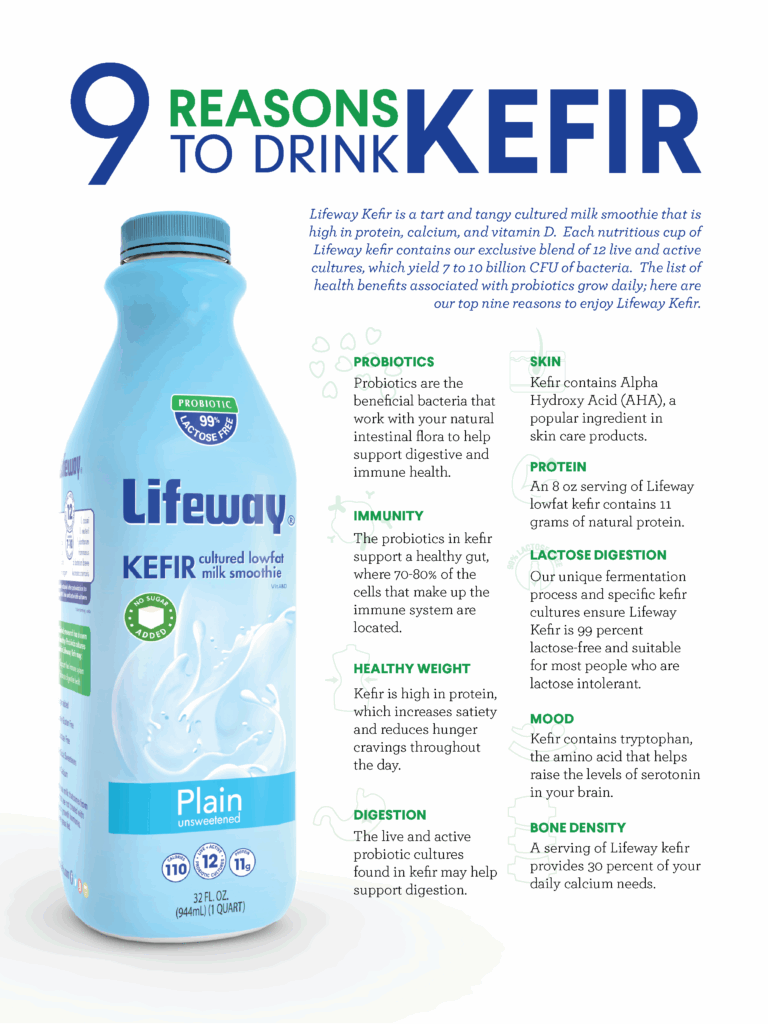Kefir is a fermented dairy product that is made by adding kefir grains to milk. These grains are a combination of bacteria and yeast that cause the milk to ferment, creating a tangy and slightly effervescent drink. Kefir has been consumed for centuries and is known for its probiotic properties, which can benefit gut health.
When looking at the nutritional information of kefir, it is important to note that it can vary depending on the type of milk used and any added ingredients. However, in general, kefir is a good source of protein, calcium, and probiotics. A one-cup serving of kefir typically contains around 100 calories, 6 grams of protein, and 10% of the daily recommended intake of calcium.
Kefir Nutritional Information
Benefits of Kefir
One of the main benefits of kefir is its probiotic content. Probiotics are beneficial bacteria that can help improve digestion and boost the immune system. Kefir is also a good source of calcium, which is important for bone health. Additionally, the protein in kefir can help keep you feeling full and satisfied.
Some studies suggest that kefir may also have anti-inflammatory and antioxidant properties, which could help protect against certain chronic diseases. Overall, kefir can be a healthy addition to your diet, especially if you are looking to improve your gut health.
How to Incorporate Kefir into Your Diet
There are many ways to incorporate kefir into your diet. You can drink it plain, or add it to smoothies, oatmeal, or salad dressings. Kefir can also be used as a substitute for buttermilk or yogurt in recipes. Just be sure to choose a plain, unsweetened variety to keep the sugar content low.
When shopping for kefir, look for brands that contain live and active cultures to ensure you are getting the probiotic benefits. You can also make your own kefir at home using kefir grains and milk. This can be a fun and cost-effective way to enjoy kefir on a regular basis.
